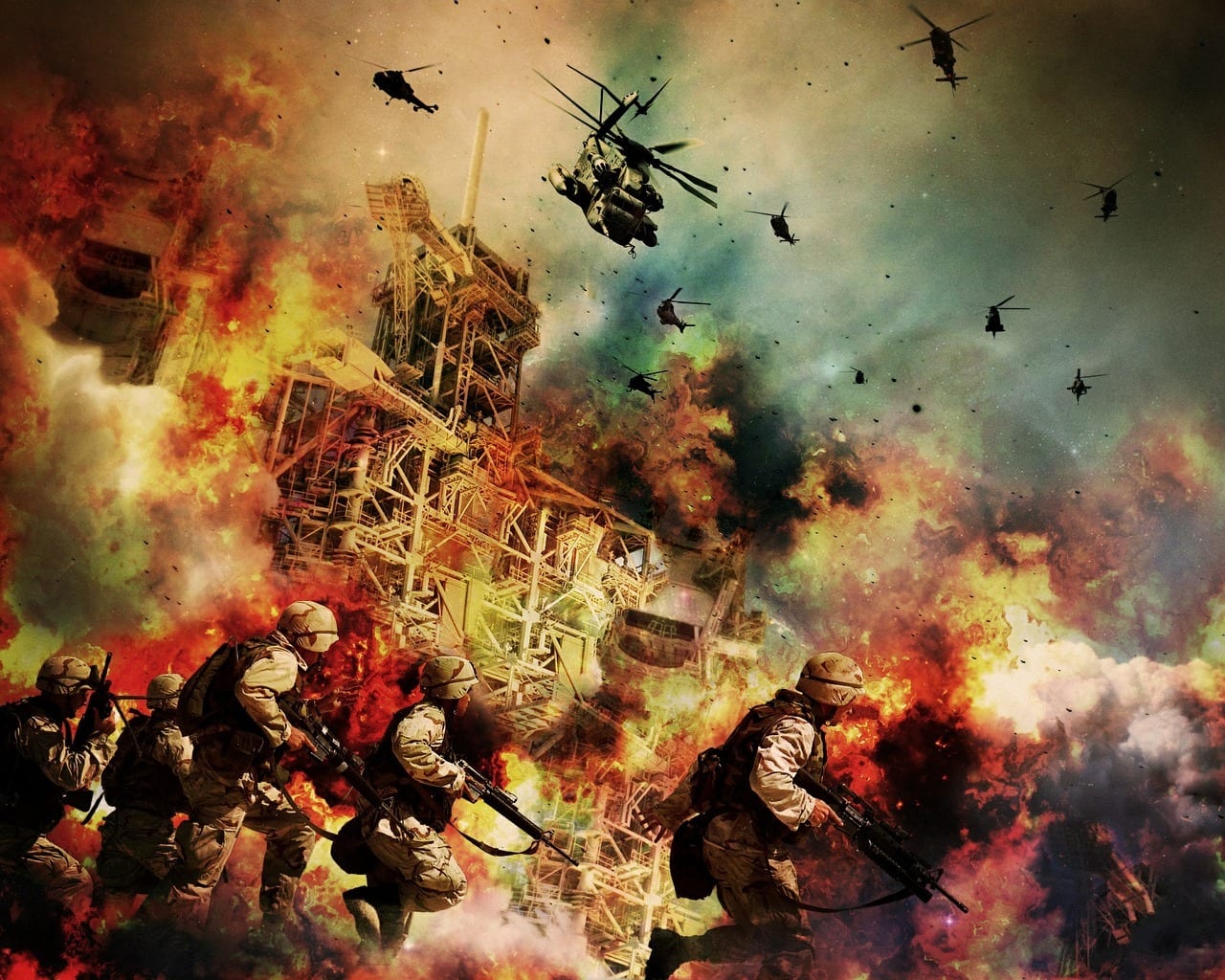
Putin’s Holy War: A Crusade for the Christian Faith?
Updated Sept 2023
Introduction
Historically, the notion of a “holy war” has been invoked to justify military campaigns rooted in religious or ideological motives. In today’s world, no leader has been more associated with this divisive concept than Russian President Vladimir Putin. His branding of Russia’s military intervention in Syria as a holy war to protect embattled Christian minorities has become a focal point of his foreign policy doctrine.
Putin’s rhetoric of fighting a righteous crusade against terrorism and religious persecution is not new. However, his increased willingness to put these words into action in Syria has brought the question of modern-day holy wars to the forefront of international discourse. The Christian Orthodox Church’s blessing of Russia’s Syrian campaign as a sacred battle has further reinforced this narrative.
But Putin’s supposed defence of faith in a distant land is not free from controversy. Critics internationally have argued that Putin’s “holy war” language is a cynical veneer to justify Russia’s geopolitical ambitions. Others contend that Putin is recklessly inflaming sectarian tensions in an already volatile region.
Regardless of one’s views on Putin’s crusade, it is evident that this complex issue touches on questions of morality, military intervention, and the relationship between religion and politics in the modern world. The following article delves deeper into the many facets of Putin’s controversial “holy war.”
The Orthodox Church and the Concept of Holy War
The Christian Orthodox Church, a cornerstone of Russian society, has been instrumental in shaping the narrative of Russia’s involvement in Syria. It has framed the country’s fight against the Islamic State and other jihadi opposition groups as a “holy war,” which carries profound religious and historical connotations. Vsevolod Chaplin, the influential head of the Church’s Public Affairs Department, has been vocal in asserting that the fight against terrorism is a sacred duty, positioning Russia as a vanguard in this global struggle.
This perspective, however, is not a recent phenomenon. The Orthodox Church has a long history of advocating for the rights and safety of persecuted Christians worldwide, particularly in regions dominated by non-Christian faiths. The Church’s leaders have consistently expressed concern for these vulnerable communities, highlighting the atrocities they face in Iraq, Egypt, Pakistan, and India.
The Church’s stance on the “holy war” is deeply rooted in its theology and tradition. With its rich history and spiritual depth, the Orthodox Church views the protection of the faithful as a divine mandate. This belief has been a driving force behind Russia’s foreign policy, particularly in regions where Christians are a minority.
The concept of a “holy war” is not merely a political tool but a deeply ingrained part of the Orthodox Church’s worldview. It is a call to arms in the face of perceived threats to the Christian faith, a rallying cry that resonates with many Russians. This narrative has been instrumental in garnering public support for Russia’s actions in Syria, painting a picture of a righteous struggle against forces of darkness.
Putin’s Pledge to Protect Christians: A Defining Aspect of His Leadership
In February 2012, a pivotal meeting occurred between Putin and Russian Orthodox Church representatives. The church leaders painted a grim picture of Christians’ persecution globally, particularly in Iraq, Egypt, Pakistan, and India. This meeting was a turning point, leading Putin to pledge the protection of Christians as a cornerstone of Russia’s foreign policy.
This commitment has not been a hollow promise. Putin’s speeches have consistently echoed this pledge, intertwining it with a broader narrative of cultural preservation and resistance against what he perceives as anti-Christian liberalism. He has lauded the West’s Christian heritage, positioning Russia as a bulwark against forces threatening this legacy.
Putin’s pledge is more than a policy direction; it is a defining aspect of his leadership. It has shaped his public persona domestically and internationally as a defender of Christian values. This stance has resonated with many Russians, who view protecting Christian communities at home and abroad as a moral imperative.
Moreover, Putin’s commitment to protecting Christians extends beyond rhetoric. It has influenced Russia’s foreign interventions, most notably in Syria, where the Russian government has justified its involvement as a necessary measure to protect Christian minorities.
In a world where religious persecution is stark, Putin’s pledge to protect Christians has become a powerful narrative. It is a narrative that continues to shape Russia’s foreign policy and its role on the global stage.
The International Response to Putin’s Holy War
The international response to Putin’s characterization of Russia’s involvement in Syria as a “holy war” has been polarized. On one side, some religious leaders like Franklin Graham of the Billy Graham Evangelistic Association have expressed support. Graham argues that Russia’s intervention could help save Syrian Christians from persecution by jihadist groups like ISIS.
However, many political leaders and analysts in the West have criticized Putin’s religious rhetoric as a cynical ploy to justify Russia’s military operations. They argue there are likely geopolitical motivations, such as propping up Russia’s ally, Assad. Some concerns that heightened religious rhetoric could further inflame regional sectarian tensions.
Overall, the religious undertones of Russia’s intervention have struck a chord with some Christian communities globally but have also been met with scepticism by many Western nations. The complexities of the Syrian civil war make the consequences of Russia’s “holy war” difficult to predict. But the narrative put forth by Putin has clearly been polarizing on the international stage.
The Impact of Putin’s Holy War on Syria
The Russian military intervention in Syria has been one of the most consequential foreign policy moves of Putin’s tenure. Moscow’s involvement has dramatically shifted the tide of the Syrian civil war in favour of Assad’s regime. However, the impact on Syria’s Christian minority remains complex and uncertain.
On one hand, Russia’s actions have helped the Syrian government regain control of areas that were under threat from Islamist rebel groups like ISIS. This has relieved pressure on some Christian communities targeted by extremists. Some argue that without Russia’s intervention, Christians would have faced an even more dire fate at the hands of jihadists.
However, critics contend that Putin’s “holy war” narrative oversimplifies the Syrian conflict. They point out that the Assad regime has also persecuted minorities at times. And Russia’s bombing campaign has resulted in civilian casualties and heightened suffering for all groups. Its actions have prolonged the war and regional instability.
Ultimately, while Putin’s framing of the conflict as a holy war may resonate with some Christian supporters, the reality on the ground defies simplistic narratives. The future of Syria’s Christians depends on far more than Russia’s military involvement. Lasting peace and stability, minority rights, and an end to external meddling by all powers involved in Syria remain elusive.
The Future of Putin’s Holy War: An Uncertain Path Ahead
President Putin’s framing of Russia’s military involvement in Syria as a “holy war” to protect Christians has been a central pillar of his foreign policy narrative. However, the future trajectory of this supposed crusade remains uncertain and complex.
While Putin remains vocally committed to defending persecuted Christians abroad, Russia’s actions in Syria have had mixed results. Its bombing campaign has supported the Assad regime in regaining territory, relieving pressure on some Syrian Christian communities. However, critics argue that indiscriminate bombing has also fueled suffering and displacement.
Moreover, the Syrian civil war continues to rage on despite Russia’s intervention. Putin’s framing of the conflict as a simple battle between good and evil belies the messy realities. Competing factions and superpowers with their own agendas have prolonged the instability. This questions how much Russia’s actions have served Syria’s Christians.
Looking ahead, the role of religion in geopolitical conflicts remains controversial. Some continue to support Russia’s staunch defence of Christian minorities abroad. However most international observers remain sceptical of religious justifications for military interventions.
While Putin may continue to utilize religious rhetoric, Russia’s future involvement in Syria will likely depend more on strategic considerations than religious ones. Its ability to sustain a long-term presence there is uncertain as well.
Ultimately, while Putin has cast Russia’s Syrian campaign as a holy war, the on-the-ground outcome remains ambiguous. Its end goal appears geared more towards projecting Russian power than establishing peace. The future of Syria’s Christian community continues to hang in the balance.
Putin’s Holy Crusade: Championing Christian Minorities in Syria
In an impassioned letter to then-President Obama, Russian Patriarch Kirill fervently implored the American leader to halt his support for Christian-persecuting jihadists. The patriarch’s plea, emphasizing Christian civilisation’s responsibility for Middle Eastern Christians’ fate, may have gone unnoticed in the White House.
In the United States, Russia’s concern for Christian minorities is often cynically dismissed, a viewpoint echoed by many prominent figures on both sides of the political spectrum. However, as Putin’s Crusade—Is Russia the Last Defender of the Christian Faith?” suggests, this dismissive stance is losing its grip on those who pay close attention.
Remarkably, an increasing number of Americans, irrespective of their views on Russia or Orthodoxy, are finding themselves swayed by Putin’s candid discourse. Putin’s speeches, in which he praises the Christian heritage of the West, have resonated with audiences, a rarity among American politicians. He concludes these speeches with a sentiment that strikes a chord with millions of traditional Americans: “We must protect Russia from that which has destroyed American society,” referring to the rampant anti-Christian liberalism and moral decay prevalent in the West.
Even the Rev. Franklin Graham, head of the Billy Graham Evangelistic Association, expresses an uncharacteristically optimistic view of Russia’s military intervention in Syria. He asserts that Russia’s actions may save the lives of Middle Eastern Christians, highlighting the Syrian government’s role in protecting religious minorities from Islamist extremists.
Graham foresees a grim outcome if U.S.-backed jihadists (often labelled as “rebels”) succeed in toppling the Syrian government—a bloodbath of Christians and a flood of refugees into Europe. It’s a stark reality that even the so-called “moderate rebels” are persecuting Christians as ruthlessly as the Islamic State.
When asked why the Obama administration seemingly ignores the plight of Christians, Graham, echoing Putin’s concerns, suggests that Obama’s focus is on promoting the homosexual agenda rather than safeguarding Christian minorities. In this complex and divisive scenario, Putin’s resolute stand for Christian minorities in Syria has become a rallying cry, sparking debates and conversations worldwide. Full Story
After reviewing the assertions and claims made in the story, it is evident that there are significant concerns regarding the actions and policies of the government, particularly in its foreign affairs and international relationships. These assertions raise questions about the ethical and moral implications of specific actions taken by the government.
It is essential for individuals to critically evaluate the information presented in such stories, considering multiple sources and perspectives to form a well-rounded understanding. The conclusion one arrives at may depend on their interpretation of the facts and their assessment of the government’s actions.
Ultimately, the story underscores the importance of transparency, accountability, and ethical considerations in domestic and international government decisions. It encourages readers to engage in informed discussions and debates about these complex issues that impact the American people and the global community.
Conclusion
In conclusion, Putin’s “holy war” on Christians in Syria is a multifaceted and contentious issue. Rooted in the Orthodox Church’s influence, it has been a defining aspect of Putin’s leadership and foreign policy. While some view it as a noble crusade to protect persecuted Christians, others see it as a geopolitical ploy.
The international response has been polarized, with religious leaders supporting it and Western critics questioning its true motives. Russia’s intervention has had complex consequences in Syria, providing relief to some Christian communities while oversimplifying the conflict.
The future of Putin’s “holy war” remains uncertain. Its outcome in Syria is mixed, and the role of religion in geopolitics continues to spark debates. The fate of Syria’s Christian community hangs in the balance, and the world grapples with Russia’s position on the global stage.
In the end, Putin’s “holy war” symbolises the complex intersection between religion, politics, and power, leaving us with more questions than answers.
Originally penned on December 6, 2015, this document has undergone periodic revisions and enhancements over the years, with the most recent update completed in September 2023.
Other stories of interest:

Student Loan Refinance: A Smart Move Towards Financial Freedom – Poise in Debt Reduction”

How to Lose Money: The Dangers of Ignoring Market Trends and Psychology in Stock Investing

How much has the stock market gone up in 2023? -A Refined Analysis

How to Achieve Financial Goals: The Midas Touch for Your Financial Dreams

Sophisticated Strategies for US Dollar Index Investing: Elevate Your Forex Game

How much has the stock market dropped in 2023?

Visionary Views: How to Achieve Financial Freedom Before 40

A Major Problem with ESOPs is That Employees Can Lose Big

The Sophisticated Guide to Cryptocurrency Investing for Dummies PDF

Considering the Impact of Inflation, Why Is Investing Important for Long-Term Financial Stability?

What the NASDAQ Composite is Trading at in Today’s Market

What Is Contrarian Investing Unleashing Creative Perspectives

ETF Newsletter: Customized Options for Astute Investors

ETF Service Providers: In-House Options for the Tactical Investor




Thanks for using the cover from my first novel! Love your blog and the exposure is awesome!